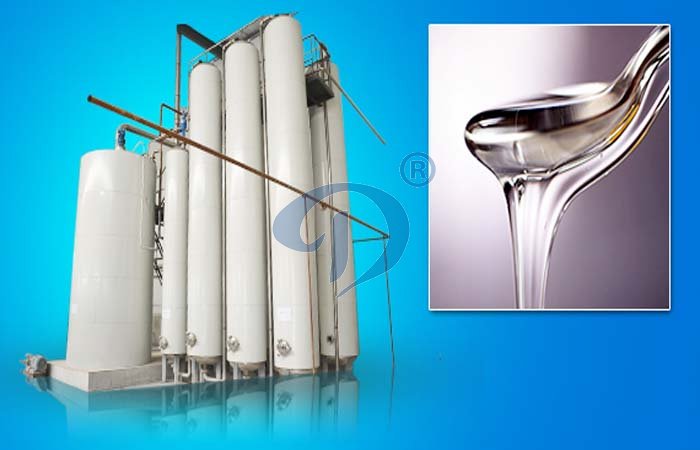 Tel/WhatsApp
Tel/WhatsApp
How to produce glucose syrup from tapioca starch?
The high demands for sugars and the development of enzymatic technology have increased the production of sweeteners, especially for glucose and fructose syrups. We need more glucose syrup from tapioca starch, corn starch, wheat starch etc. This work describe a technology for glucose syrup from tapioca starch using enzymes produced by double enzyme method.

Starch processing machine
How to glucose syrup from tapioca starch step 1- how to process tapioca starch milk?
1.Feeder & cleaning
The raw material fresh tapioca delivery to cage washer through scrape board to get the result of decontamination, cleaning and peel. Then through a paddle-washing slot, material is sent to crash section.
2.crushing and refining
The crashed material is sent to centrifugal sieve through pump to extract starch and separate tapioca residues. Centrifugal sieve group are 4 or 5 stages, the front stages is to extract starch and the last stage is to dewater the potato residue. The whole stage adopts countercurrent washing to get the best results and saving water. tapioca residue is sent out of workshop after separation of residue slurry for further processing.
3. Hydrocyclone
Tapioca starch slurry reaches starch hydrocyclone group to refine starch. 18 stages hydrocyclone is usually adopted for cassava starch and is divided into three functional areas, which are starch washing, recycling and concentration area. The concentration of starch discharged from the last stage can reach 23Be.And protein is less than 0.1%.

Starch processing machine

Glucose machine
How to glucose syrup from tapioca starch step 2- how to process glucose syrup from tapioca starch?
1 Mixing: The DS value of the starch that came from starch plant is adjusted to 28-32% and control a proper value of PH and temperature. Or adding a certain amount of water to achieve the above conditions then go to the next section.
2 Liquefaction and heating: Starch milk is sent to buffer tank then liquefied by jet cooker with the aid of enzyme.
3.Saccharification: The liquefied material keeps reaction for a certain time under the action of enzyme. The required DE value of the glucose will be produced. Then the material is sent to the enzyme killer to kill the enzyme.
4.Filtration and decolorization: Glucose gets through the filter to remove protein and other impurities, then at the appropriate temperature passes by active carbon to decoloring, finally send to filters to remove activated carbon and send to the next section.
5.Final production storage tank:Maintain the glucose syrup purity, easy transportation.
6.Evaporation: The glucose is totally cleaned through safety filter machine then sent to evaporator for concentrating to reach the required DS as final product.
-
 Reasons for excessive impurities in cassava starch production
Reasons for excessive impurities in cassava starch production
-
 Main Factors Influencing the Price of Cassava Starch Processing Equipment
Main Factors Influencing the Price of Cassava Starch Processing Equipment
-
 Tips for buying fufu making machine
Tips for buying fufu making machine
-
 How to transform cassava into cassava slices?
How to transform cassava into cassava slices?
-
 How to Choose the Most Suitable Cassava Flour Milling Machine for Your Agro-Processing Factory?
How to Choose the Most Suitable Cassava Flour Milling Machine for Your Agro-Processing Factory?
-
 What should I pay attention to for reducing starch loss during cassava starch production?
What should I pay attention to for reducing starch loss during cassava starch production?
-
 Common Problems and Solutions During Cassava Starch Production
Common Problems and Solutions During Cassava Starch Production
-
 How Does a Cassava Grinder Work?
How Does a Cassava Grinder Work?
-
 Advantages of cassava peeler used for cassava agriculture
Advantages of cassava peeler used for cassava agriculture
-
 What Should You Consider When Ordering a Tapioca Starch Processing Machine?
What Should You Consider When Ordering a Tapioca Starch Processing Machine?
-
 Doing Factory Ships High-Quality Garri Processing Equipment to Nigeria
Doing Factory Ships High-Quality Garri Processing Equipment to Nigeria
-
 Selling High-Quality Cassava Processing Equipment to Uganda
Selling High-Quality Cassava Processing Equipment to Uganda
-
 Gari processing line successfully shipped to Nigeria
Gari processing line successfully shipped to Nigeria
-
 Cassava starch fine fiber sieve purchased by Indian client
Cassava starch fine fiber sieve purchased by Indian client
-
 Gari making plants were transported to Ghana from Henan Jinrui’s factory
Gari making plants were transported to Ghana from Henan Jinrui’s factory
CONTACT US
DOING company offers cassava processing machine from single machine to the complete production line. If you want to get more details about cassava processing machine, please contact us:
- Do you want to buy machine?
- Yes, I want to buy machine
- No, I Just learning
- What is your raw material?
- Cassava
- Potato
- Sweet potato
- Others
- 2. What is the final product you want to produce?
- Garri
- Cassava flour
- Cassava starch
- Cassava chips
- Attiekie
- Bammy
- Others
- 3.What is your capacity plan?
- Small scale garri machine
- 1ton per day
- 2tons per day
- 3tons per day
- 10tons per day
- 20tons per day
- Others
- 3.What is your capacity plan?
- Small scale
- 5tons per day
- 10tons per day
- 20tons per day
- 50tons per day
- 100tons per day
- Others
- 3.What is your capacity plan?
- Small scale
- 5tons per day
- 10tons per day
- 20tons per day
- 50tons per day
- 100tons per day
- 200tons per day
- 300tons per day
- Others
- 3.What is your capacity plan?
- Small scale
- Middle type
- Large scale
- What is your capacity plan?
- Small scale
- 5tons per day
- 10tons per day
- 20tons per day
- 50tons per day
- 100tons per day
- 200tons per day
- 300tons per day
- Others








